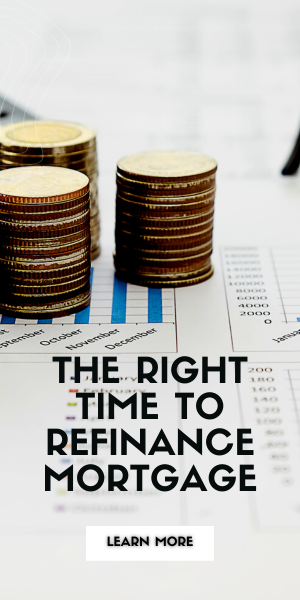There is no universal, pragmatic approach to real estate investment. Residential property, just like any other investment vehicle, needs an individualistic approach. To put it differently, you need to recognise and address your specific needs, objectives and circumstances so as to reach the level of success you aspire to. Nevertheless, there are certain guidelines that, when implemented, can make your trip that much more profitable and the path to attain your investment goals a ton less rocky. These are 7 ways to invest in property that provide you with lifestyle options while minimising your dangers.
PLOT YOUR COURSE AND STICK WITH IT
Here is the first essential measure when you are just starting your property investment venture.
Locate an established property investment plan that contrasts with your risk profile, goals and time period.
Steer clear of this get rich quick schemes — in my own experience winning approaches lend themselves more to the tortoise speed of steady and slow. It May not be as hot, but I think those beginning should think about: Purchase and maintain — this entails leveraging the numerical mechanics of time and equity.
This comes with an acquisition period, where you include high expansion and quality assets into your portfolio and hold them for a long duration, permitting your capital profits to offer you additional equity to your purchases.
As soon as you’ve assembled a considerable asset foundation, you can transition to the money flow period of your investment travel.
Purchase, renovate & maintain— as above, but you have the chance to “manufacture” funding growth and hasten the development of your portfolio.
This is accomplished by getting ‘fixer-uppers’ in desired places (i.e., the worst home or flat, at the best road, in the ideal suburb) and projecting decorative improvements to raise your property’s capital and rental price.
SET A PROPERTY INVESTMENT ‘PEER’ NETWORK
 It’s crucial for investors to surround themselves with seasoned professionals who can add substantial value to their journey. Whether you need a property-savvy accountant, attorney, finance broker, property strategist, or a mentor—someone who has been through it all—it’s equally important to connect with like-minded individuals who are also exploring property investment strategies. Networking is essential in today’s world, with numerous social media forums and websites available where you can engage in discussions on virtually every conceivable property topic.
It’s crucial for investors to surround themselves with seasoned professionals who can add substantial value to their journey. Whether you need a property-savvy accountant, attorney, finance broker, property strategist, or a mentor—someone who has been through it all—it’s equally important to connect with like-minded individuals who are also exploring property investment strategies. Networking is essential in today’s world, with numerous social media forums and websites available where you can engage in discussions on virtually every conceivable property topic.
Many experienced real estate investors are more than happy to connect with newcomers online, offering property investment advice in Melbourne and beyond. Attending seminars, presentations, and shows can also be a fantastic way to meet like-minded individuals who can help keep you accountable and on track. Engaging with a property investment advisor can further enhance your knowledge and provide tailored guidance throughout your investment journey.
CRUNCH THE NUMBERS… TWICE!
Although it sounds obvious, it is critical that you’ve got a fantastic financial foundation when you venture into real estate investment. Once you run your numbers according to the current interest rates, account for future up adjustments of 2 percentage points and then run them .
We’re in a really fortuitous, reduced rate of interest environment which has encouraged a beginning investor to the match. However, I wonder how many’ve calculated if they could afford to hold onto their assets when interest rates always move up into the 6’s and 7?
It may occur for a little while, but it probably will someday.
GIVE YOUR TARGET MARKET WHAT THEY WANT
Real estate investmentis a business proposal. Therefore, you have to know of your target market in regards to ‘promoting’ your merchandise.
While renters pay your lease and help with this all-important cash flow to maintain your portfolio, owner-occupiers will be the industry force that finally decides the value of your investment property.
Especially if you are planning to destroy an old property and construct a new one on the land, you want to be completely educated on who the renters and homebuyers in that area are. This is to equip you with the necessary information as to how you might want to remodel the house in the area. Something to think about before you hire that crane for your construction.
Then it is about picking out the proper property which appeals to both teams, so as to increase your long-term capital profits (because owner occupiers like this kind of land and rental yields (to handle those mortgage obligations.)
For example, purchasing a one-bedroom apartment in the outer world, where the overriding citizens are young, growing families, is not actually a wise investment decision.
MASTER THE NEGOTIATION AND PURCHASING PROCESSES
Understanding how to negotiate not only the last selling price but also various contract provisions is a significant element of real estate investment. You might discover in real estate what’s negotiable — not only the price, but also the deposit, the settlement provisions, what is left in the home, etc..
Obviously, whilst what’s possibly negotiable, do not get too carried away and reevaluate the bargain so much that you loose on a fantastic purchase by earning your offer unsightly to the buyer.
CAPITALISE ON PROPERTY INVESTOR ‘TAX PERKS’
As you need to be investing in capital growth, cash flow is a vital element of any well-rounded property investment portfolio. Failing to keep a healthy bottom line means placing your entire asset base in danger. Now, that does not mean that you invest in cash flow-positive properties.
Instead, one of the ways that you can increase your cash flow is by taking advantage of the variety of income tax incentives available to residential property investors. Talk with your accountant to be sure that you maximise your valid tax deductions in addition to depreciation allowances. Another, and it might sound obvious, is to minimise your spending. It does not make sense for a property mogul to hire the largest cranes in order to build low rise buildings.
DON’T MAKE IT PERSONAL
That is more difficult than it sounds because while the majority of us have seen property from a psychological place previously — our very own house where we produce memories with loved ones — we still haven’t made a bricks and mortar buy only from a frequent sense, monetary standpoint.
However, to spend strategically, it is crucial that you eliminate your heart in the equation. This is not about your own personal preference but about the attractiveness of the property to this target market we mentioned previously.
All in all, property investment is a statistics game. Approach it with solid logic and a detached, objective eye, basing your choices on an investment plan aligned with who you are, where you are and where you wish to be in the long run, and you are well on your way to effectively constructing a multi-million dollar investment portfolio.




